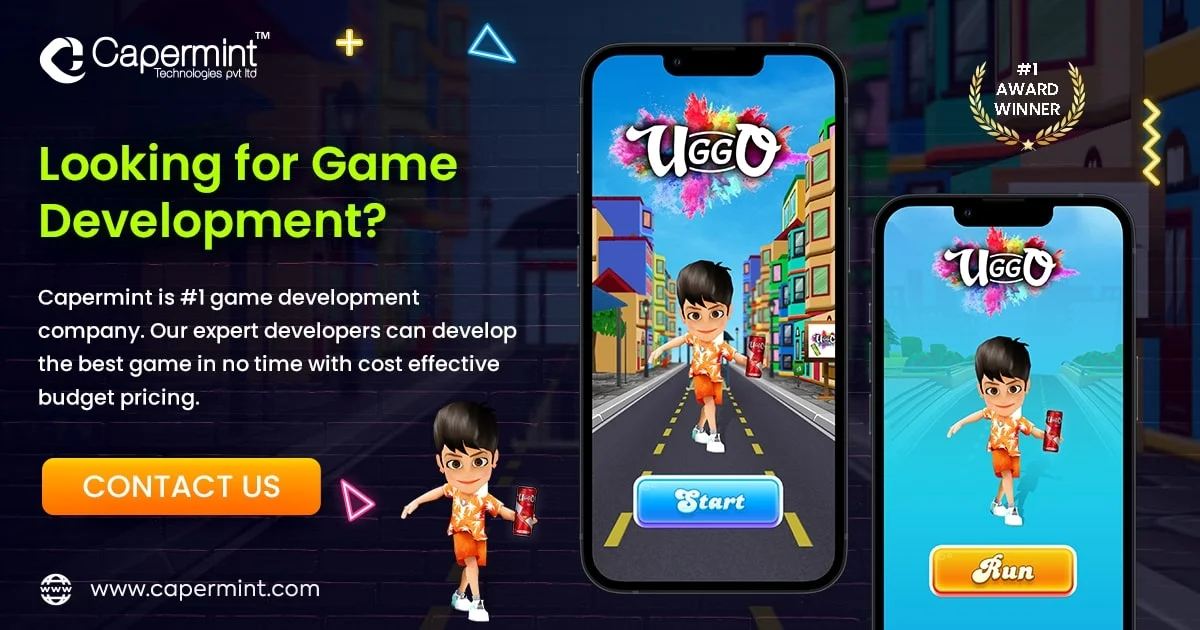In 2021 only, the global video game industry generated $37 and $53.5 billion from PC and mobile gaming respectively. The figures are going to rise exponentially in the year 2022. Games on smartphones are gaining popularity: no matter how big or small, people play them either for fun or to learn something new. As mobile games became increasingly popular, game engines became more sophisticated.
The types of game-making platforms are code-reliant, drag-and-drop, and hybrid.
For game development, choosing just one tool out of an abundance of game engines can be quite challenging.
However, this challenge must be dealt with head-on, as the game’s entirety depends on the tools and technology used to develop it. The game’s graphics, performance, assets, and everything else largely depend on the game development tools that will be used to develop it. Therefore, before the game development starts, you have to decide which technology you will use for your mobile game.
Two of the most prominent technologies are Unity 3D and HTML5, and it has been observed that many people have a hard time deciding between these two. So, we have created this article to solve this debate, and to provide a proper guideline for which technology you should choose.
In this article, we will discuss what Unity 3D and HTML5 technologies are and which is the best for game development.
What is Unity 3D?
Developed by Unity Technologies, Unity 3D is an open-source, cross-platform game development engine used to develop 2D, 3D, VR, and AR games. It is a well-known game development engine and is also considered one of the best game development engines. Unity 3D Engine provides many features and can be used to develop almost any game.
Unity 1.0 was released in June 2005, when developers Nicholas Francis, Joachim Ante, and David Helgason created the first version of what would become one of the most widespread game engines.
The engine, which supports over 25 platforms from the prominent iOS to PS5, to the less visible Windows Mixed Reality or Android TV, has been installed over 33 billion times in just the last 12 months. With Unity 3D, developers can develop games backed with cinematic animations and photorealistic assets.
Some facts about Unity 3D
- HTML5 is the technology behind most web games.
- HTML5 will become more popular with the rise of cloud gaming.
- Famous mobile game titles often make it to HTML5 and it provides more exposure to these titles. Some
- examples are Cut the Rope, Subway Clash remastered, Basketball stars, etc.
Unity vs HTML5
For the actual comparison between Unity and HTML5, we will compare them through various stages of the game development process. We will highlight the pros and cons of Unity and HTML5 during various phases to provide you with the clearest and most elaborated comparison between the two.
The various game development stages are:
System Setup
Unity 3D
Pros
- Unity 3D is self-contained and quite easy to set up.
- It is a one-click solution and offers everything that is needed for game development.
Cons
- It is not an open-source game development engine and is controlled by a single company.
- If the developers encounter a bug during the development period, they have to wait till the company solves this bug.
- Workarounds built so far could also be broken by the new update.
HTML5
Pros
- The setup of HTML5 is one of the easiest ones for web developers.
- There are no IDE dependencies, or no local code setup needed.
Cons
- The setup can be extremely tricky and time-consuming for those new to HTML5.
- A local server is needed to set up and develop an HTML5 game.
- To develop a game on HTML5, the developers have to choose HTML5 supported framework, and as there are many framework options to choose from, it becomes a hefty task.
Developing the Game
Unity 3D
Pros
- It is relatively easy and faster to develop various types of games using Unity 3D.
- Unity 3D is the perfect engine to develop complex games with amazing graphics.
- Multiple useful features like built-in physics, component building, and preview debugging, make the development process smooth.
- Multiple libraries ease the development process.
Cons
- If C# language is used it complicates the game logic, and script-based coding does not support many reusable code libraries.
- Unity has a certain way or process that has to be followed, so for developers who want to develop everything their way, Unity will hinder their process.
- It is costlier to develop games using Unity 3D.
HTML5
Pros
- It is easy to create cross-platform games using HTML5.
- HTML5 is great to develop casual games.
- HTML5 is based on JavaScript and it is relatively easy to learn and use.
- The TypeScript and CoffeeScript cross-JavaScript compilers are available to developers.
- It is relatively cheap to develop games using HTML5.
Cons
- HTML5 is not suitable to develop complex games.
- It does not offer an extensive library for game development.
- Has a limited tool integration.
- Picking the proper framework is hard and often the developers are confused about where to start.
- Various HTML5 frameworks are under development or are under-developed.
Publishing the Game
Unity 3D
Pros
- Unity offers a one-click publishing feature.
- It supports cross-platform game development and deployment including web games, console games, PC games, and mobile games.
- No matter what device you’re using, Unity games will perform well.
Cons
- The cost of publishing the game on every platform is high, so reaching more users using Unity games is really heavy on the pocket.
- A lack of support for mobile and web browsers exists.
- There is also a requirement for a plugin for web playback.
HTML5
Pros
- HTML5 is web-based and so it’s easy to publish games to the web with HTML5.
- No plug-in is required to publish the games and it makes it ideal for mobile and web browsers..
Cons
- Offline publishing using HTML5 is extremely nerve-wracking.
- It does not offer a one-click publish option.
Who is the winner?
As for the winner, it is a draw!
It is not right to outright call one technology better than the other, as this answer totally depends on the use case. Both Unity and HTML5, have their own share of pros and cons. The right technology for your game depends entirely on your needs and requirements and by consulting the right game development company, they can assist you in selecting the right technology for you.
It does not matter what technology you use for game development, but finding the right technology for your project is what matters the most.
HTML5 is a cost-effective game development technology, and Unity 3D is a perform-effective game development technology. In general, if your game is a simple one that requires less complicated features and gameplay, then HTML5 can be the better choice for you.
If your game is a complex one with various top-notch features, amazing graphics, and elaborate gameplay, then Unity 3D can be the better choice for you.

Need Help Figuring out the Right Technology for your Game Development Project?
If you are still not sure which technology to use for your game development project, and you need consultation from experts regarding this, you can contact Capermint Technologies. Our experts will help you with every query you have and will suggest the best for your game development project. With years of experience in developing games for various platforms and devices, our experts will help you figure out the best technology based on your project.















